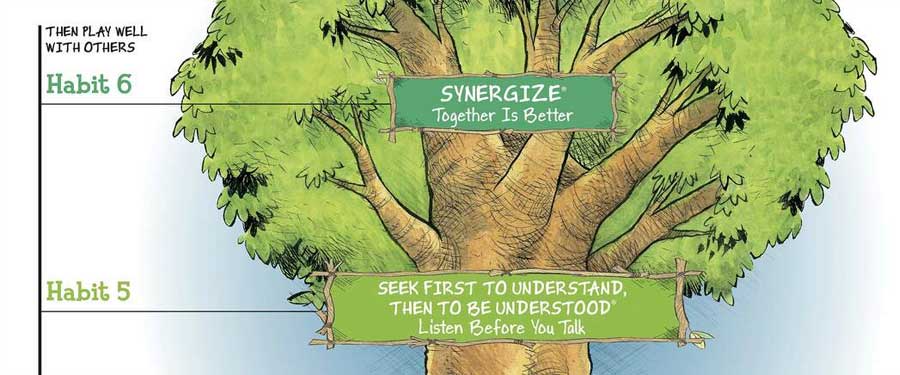
Habits and Dissertations – 2 of 4
On August 15, 1989, Dr. Stephen R. Covey published his revolutionary book, The 7 Habits of Highly Effective People. The 7 Habits have helped millions of people improve their performance in a range of applications. In Part 2 of this 4-part series, I’m going to show you how the Habits 5 & 6 have been instrumental in helping us cut at least one to two years off the time to graduation for our dissertation students…
Part 2 of 4:
Habit #6: Synergize.
Habit #6 reminds us of the power of teamwork. When working on your dissertation, you should try to syngerize in multiple ways.
First, when writing your literature review, you should think of the researchers who came before you as part of your team. You don’t want to simply present their work in isolation. Rather, you should treat their work as a contribution to your own. For your dissertation, their work is not important, but how it supports and strengthens your work is.
Second, you should work with your committee in a synergistic way. View your committee as teammates, not adversaries. Your job is to deliver a dissertation that your committee will approve. Your committee will work with you to help you achieve this goal. They will give you feedback on your drafts. They will guide you forward. You should take their feedback as being helpful and constructive, not difficult or obstructionist.
Finally, few students complete a dissertation without help and support. You should build your support team as soon as possible. You may be able enlist emotional support from family members. Perhaps your manager or coworkers can provide you motivation to keep going. You may turn to colleagues or former classmates for academic support. And, you may choose to engage coaching services for both emotional support and academic guidance.
No man is an island, and no dissertation student is truly alone. Find all of the ways you can synergize and leverage others’ efforts to help you get to graduation sooner.
Habit #5: Seek First to Understand, Then to be Understood.
Habit #5 speaks to a critical dynamic that cripples far too many relationships, professional, casual, and personal. Most people don’t really listen, instead they simply wait for their turn to talk.
When writing your dissertation, it’s quite natural to want others to hear you, to understand you. After all, you’re the author. Right?
The problem with this thinking is that your dissertation is not done when your committee understands you. It’s done when you understand your committee!
Only when you understand your committee can you give them what they want. And, your committee will only approve your study when they get what they want.
So, seek to understand your committee, give them what they want, and get to graduation as soon as possible!
